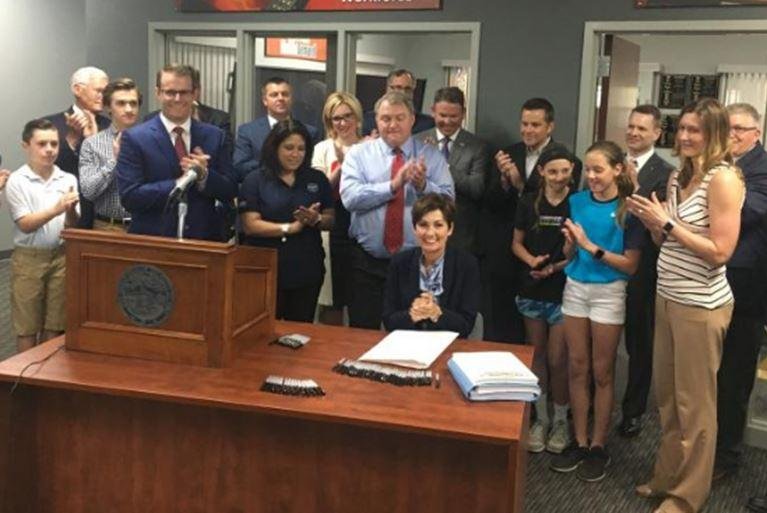Iowa Gov. Kim Reynolds signs the state's "Heartbeat Law" abortion bill on May 2. Friday, a judge granted a temporary injunction until legal challenges to the law are resolved. Photo courtesy Office of the Iowa Governor
June 1 (UPI) -- Enforcement of Iowa's new abortion law will be delayed while a lawsuit challenging its constitutionality is resolved, a judge ruled on Friday.
The law, regarded as the most restrictive in the country, was signed last month by Gov. Kim Reynolds. It bans abortions past six weeks, excepting those resulting from incest or rape. It also bans nearly all abortions if a fetal heartbeat can be detected, leading to it becoming known as the "Heartbeat Law."
Critics say the law would only allow abortions before most women know they're pregnant.
A hearing ended Friday with Judge Michael Huppert granting a temporary injunction. While it does not permanently block the law, it stops enforcement until a legal challenge works its way through the court.
State attorneys agreed to the injunction after discussions with abortion rights groups. The American Civil Liberties Union of Iowa, Planned Parenthood Federation of America and Iowa City's Emma Goldman Clinic have already sued to block the law.
Attorneys from the Thomas More Society, a Chicago-based law firm, are defending the state. Iowa Attorney General Tom Miller disqualified his office from taking up the case, saying the law would "undermine rights and protections for women."
An unidentified state attorney said getting the case before a judge, to test its constitutionality, was the reason for a lack of objections at Friday's hearing.
Filing the lawsuit in state court prevents it from becoming a challenge to Roe v. Wade, a 1973 ruling in which the U.S. Supreme Court legalized abortion nationwide. The high court does not review state supreme court decisions regarding state constitutionality challenges.















